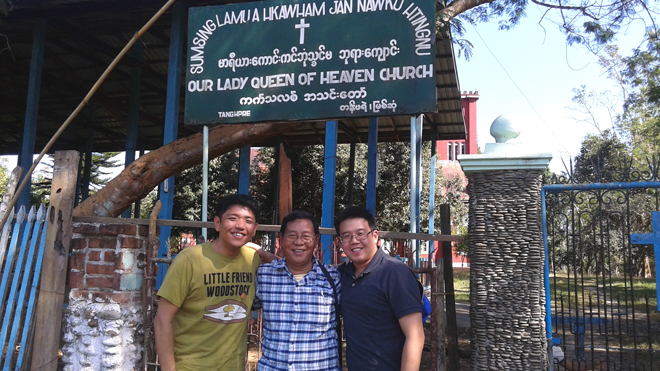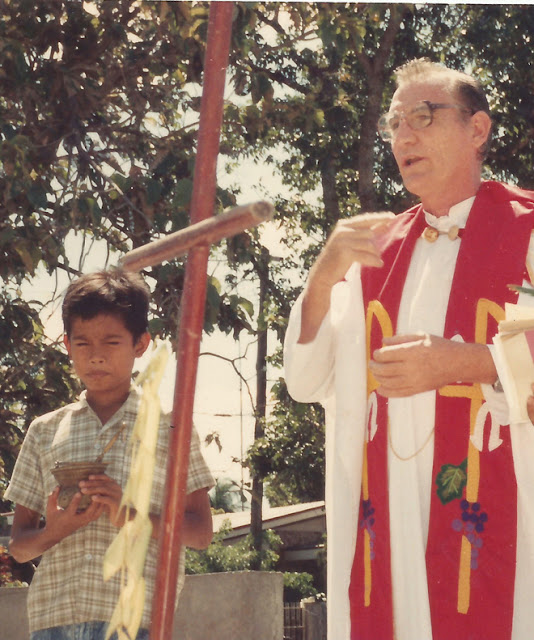
St John the Evangelist, El Greco, painted 1610-14
Museo de El Greco, Toledo, Spain [Web Gallery of Art]
Readings (New American Bible: Philippines, USA)
Readings (Jerusalem Bible: Australia, England & Wales, India [optional], Ireland, New Zealand, Pakistan, Scotland, South Africa)
Gospel Mark 9:38-43, 45, 47-48 (New Revised Standard Version – Catholic Edition, Canada)
John said to Jesus, “Teacher, we saw a man casting out demons in your name, and we forbade him, because he was not following us.” But Jesus said, “Do not forbid him; for no one who does a mighty work in my name will be able soon after to speak evil of me. For he that is not against us is for us. For truly, I say to you, whoever gives you a cup of water to drink because you bear the name of Christ, will by no means lose his reward.
Whoever causes one of these little ones who believe in me to sin, it would be better for him if a great millstone were hung round his neck and he were thrown into the sea.
And if your hand causes you to sin, cut it off; it is better for you to enter life maimed than with two hands to go to hell, to the unquenchable fire. And if your foot causes you to sin, cut it off; it is better for you to enter life lame than with two feet to be thrown into hell. And if your eye causes you to sin, pluck it out; it is better for you to enter the kingdom of God with one eye than with two eyes to be thrown into hell, where their worm does not die, and the fire is not quenched”.
 Abbey of Our Lady of the Holy Trinity, Utah
Abbey of Our Lady of the Holy Trinity, Utah
In August 1982, after a year’s study in Toronto and before three months of Clinical Pastoral Education in Minneapolis, I supplied in a number of parishes for short periods in the Diocese of Boise, which covers the whole of the state of Idaho in the western USA. One of my purposes for this was to visit the Abbey of Our Lady of the HolyTrinity, Huntsville, Idaho, where I had spent ten days or so in August 1970. There I had met some of the monks who were to be part of the team that would open the first Trappist foundation in the Philippines, in Guimaras island, now the Abbey of Our Lady of the Philippines.
I spent a week in one parish where the parish priest was from India, there were reservations of two different Native American tribes, many Spanish-speaking immigrants working on farms in the area and a majority of the people in the town proper of the Mormon faith. The local newspaper carried photos of young Mormons going on mission to other countries.
Just after lunch one day the doorbell rang. A young woman asked me to go to the hospital where an old woman, a Catholic and a relative of hers, had been in a coma for a long time, and was dying. I immediately went to the hospital and, to my surprise, the patient was fully awake and participated joyfully in the Last Sacraments, including viaticum, as I had brought the Blessed Sacrament with me. I learned later that she died about twenty minutes after I left.
The young woman who had asked me to go to the hospital was a Mormon.
When I was a child we lived in a street of terraced houses in Dublin where no one had a telephone. One time one of our neighbours, Jem Norris, got gravely ill in the middle of the night. Charlie Brooks who lived across the road went for the priest, whose house was about a kilometre away.
Charlie was a Protestant.
I have posted in Sunday Reflections before about a Mass in Belsen concentration camp, Germany, shortly after it was liberated in 1945. The account, published in 2004 in The Daily Telegraph (London) is by James Molyneaux, then a young officer in the British Army and later leader of the Ulster Unionist Party in Northern Ireland and now a member of the House of Lords. He wrote:
The most moving experience came on the second morning as I was walking from what had been the luxury SS barracks which our troops had transformed into a hospital. My attention was drawn to two packing cases covered by a worn red curtain. A young Polish priest was clinging to this makeshift altar with one hand, while celebrating Mass. Between his feet lay the body of another priest who probably died during the night. No one had had the energy to move the body.
I had no difficulty in following the old Latin Mass, having been educated at St James’s Roman Catholic School in County Antrim, and, although an Anglican, I had gained a working knowledge of all the rituals. Still supporting himself against the altar, the young priest did his best to distribute the consecrated elements (editor’s note: the Body of Christ). Some recipients were able to stumble over the rough, scrubby heathland. Others crawled forward to receive the tokens (editor’s note: to receive the Body of Christ) and then crawled back to share them with others unable to move. Some almost certainly passed on to another – probably better – world before sunset. Whatever one’s race or religion one can only be uplifted and impressed by that truly remarkable proof of the ultimate triumph of good over evil.
When I first read this article I was deeply moved in a number of ways. I was surprised to discover that the author had gone to a Catholic school in a community where, at least since the latter 1800s, there has been a deep divide between Catholics and Protestants, for historical reasons that are not entirely theological. But here was an Anglican from that background giving a powerful testimony to the Mass as the Holy Sacrifice. And he noticed how those who were barely able to crawl shared the Body of Christ with those who couldn’t move at all.
I find in the three stories above an illustration of the response of Jesus to the complaint of St John, Teacher, we saw a man casting out demons in your name, and we forbade him, because he was not following us. Jesus says, For he that is not against us is for us. For truly, I say to you, whoever gives you a cup of water to drink because you bear the name of Christ, will by no means lose his reward.
St John’s complaint reflects that of Joshua to Moses in the First Reading. the response of Jesus reflects that of Moses: Would that all the LORD’s people were prophets, that the LORD would put his spirit upon them! (Numbers 11:29).

A memorial stone erected near the ramps where prisoners for Belsen were unloaded from goods trains
James Molyneaux’s article also illustrates the reality of hell that Jesus speaks about today. He writes:
On arrival at Tactical Headquarters, we had been briefed on the discovery of the Belsen prison camp nearby. In company with our RAF medical unit and the two 2nd Army Field hospitals, we wasted no time. Briefed though we were, the shock excelled all the horrors of the battles of the 12 months since Normandy.
As we passed through the camp gates, the Royal Military Police requested us to drive very slowly to avoid the numerous disoriented prisoners. We were handed adhesive tape to put over the vehicle horns in order to prevent them going off accidentally, lest the shock would cause still more deaths. [This little detail is surely telling.]
The British liberators were staggered and shocked by the inhuman behaviour of some of the former guards, who continued to abuse and torment prisoners nearing death when they assumed we were looking the other way. I confess that on such occasions I may have breached the Geneva Convention to prevent further ill treatment of helpless victims. Their behaviour after we had arrived contradicted the excuse that the SS had forced them to carry out orders. Our new orders to them were “Stop acting like savages”.
The ‘Thousand Year Reich’ of Hitler was in ruins after twelve years, and millions dead all over the world. These deaths, like countless deaths since, were caused by persons who chose evil over good. Each choice we make for sin is not at the level of choosing the evil of Belsen but it moves us towards that. Other dictators have tried their hand at their own version of Hitler’s distorted vision and people have gone along with them.
Each of us likes to have power. We may not be conscious of this and in many instances there’s no sin at all. I remember once seeing in a Catholic magazine a cartoon of people assembled for Mass where you were asked to ‘spot the errors’. One was the proverbial ‘little old lady’ kneeling in the middle of a pew instead of blocking it at one end. There are times, especially as I grow older, when I can see the ‘little old lady’ in myself, trying to subtly ensure that things are done my way. Indeed, in the parish in Idaho where that kind young Mormon woman asked me to go to the dying elderly woman, the housekeeper asked me what time I’d like to have dinner at each day. I told her – but she always served it thirty minutes earlier.
But if I am a spouse, a parent, a teacher, a boss, a priest who doesn’t listen to the other, who rules my little domain with a heavy hand, the words of Jesus are directed at me.
What is the ‘hand’, the ‘foot’, the ‘eye’ that causes me to sin, especially in the use of power?
World Maritime Day

Ships in Distress off a Rocky Coast, Ludolf Backhuysen, 1617
National Gallery of Art, Washington DC [Web Gallery of Art]
World Maritime Day was observed this week on Thursday, 24 September, but this Sunday is National Seafarers’ Day in the Church in the Philippines.
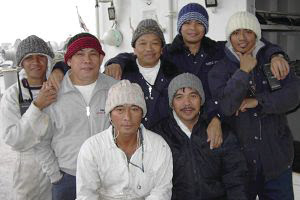
Evangelizing Filipino Seafarers
A huge percentage of the world’s international seafarers are Filipinos. MISYONonline.com, the Columban magazine in the Philippines that I edit, carried a story about some of them in the November-December 2007 issue, Christmas in Teesport. In September-October 2006 Misyon published Evangelizing Seafarers, a title that can be understood in two different ways. The opening paragraph expresses one of those:
Father Arsenio ‘Dodo’ Redulla from Bohol, Philippines, now a priest of the Diocese of Lubbock, Texas, USA, worked for some years with the Columbans in Ireland. Early one Sunday morning he was driving out of the small southeastern port city of Waterford to celebrate Mass in a nearby town and to speak about the work of the Columbans. As we say in Ireland, ‘There wasn’t a sinner to be seen’ – the Irish aren’t early risers on Sunday morning – except for a young Filipino thumbing a lift. At the time there were very few Filipinos in the country and Father ‘Dodo’ was the only Filipino priest there. Of course, he stopped. To his amazement the young man said, ‘I was hoping someone would take me to a church for Mass.’ His ship had just docked and he had never been in Ireland before.
Please remember all seafarers in your prayers.
One of my favourite poems in school was John Masefield’s Sea-Fever. Here it is read by Fred Proud. There is some controversy as to whether the first line in each stanza should read ‘I must down . . .’ or ‘I must go down . . .’ Fred Proud opts for the former. John Masefield himself uses the latter here.
I must down to the seas again,
to the lonely sea and the sky,
and all I ask is a tall ship
and a star to steer her by,
and the wheel’s kick and the wind’s song
and the white sail’s shaking,
and a grey mist on the sea’s face
and a grey dawn breaking.
I must down to the seas again,
for the call of the running tide
Is a wild call and a clear call
that may not be denied;
and all I ask is a windy day
with the white clouds flying,
and the flung spray and the blown spume,
and the sea-gulls crying.
I must down to the seas again
to the vagrant gypsy life.
To the gull’s way and the whale’s way
where the wind’s like a whetted knife;
and all I ask is a merry yarn
from a laughing fellow-rover,
and a quiet sleep and a sweet dream
when the long trick’s over.
John Ireland’s setting of the poem, sung here by Michael Lampard, opts for ‘I must go down . . .’






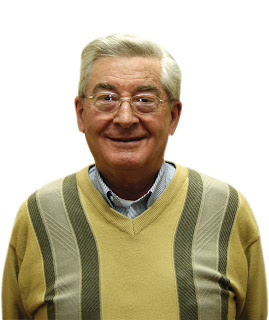
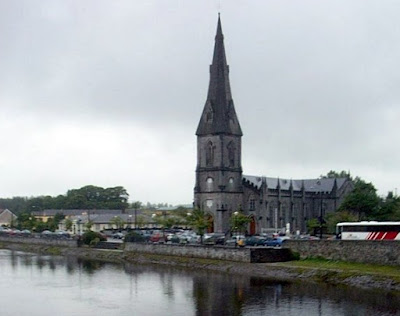






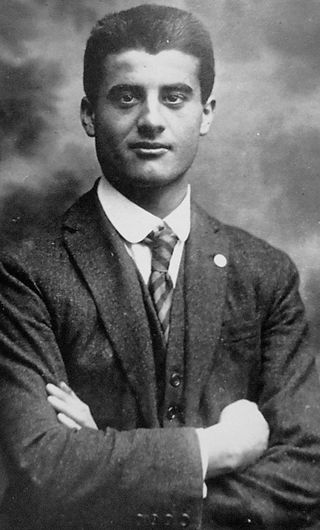
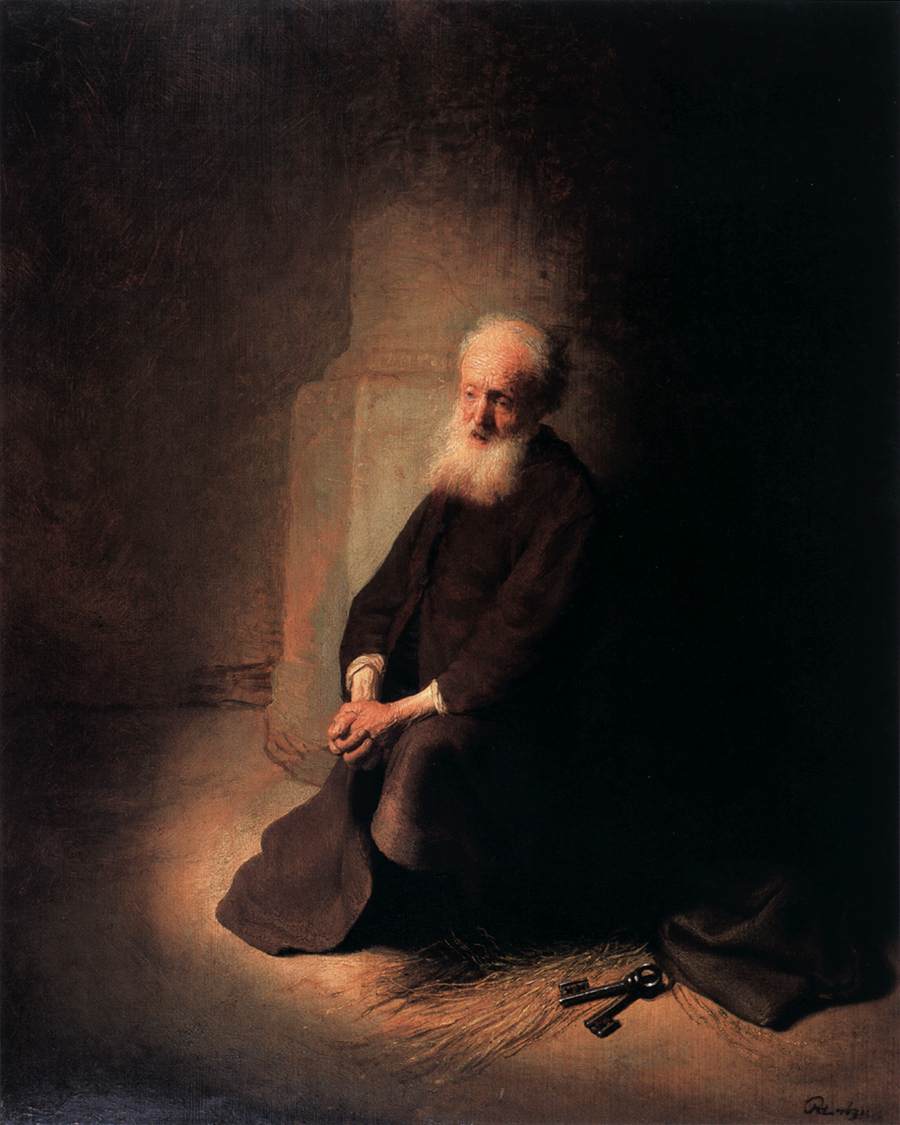

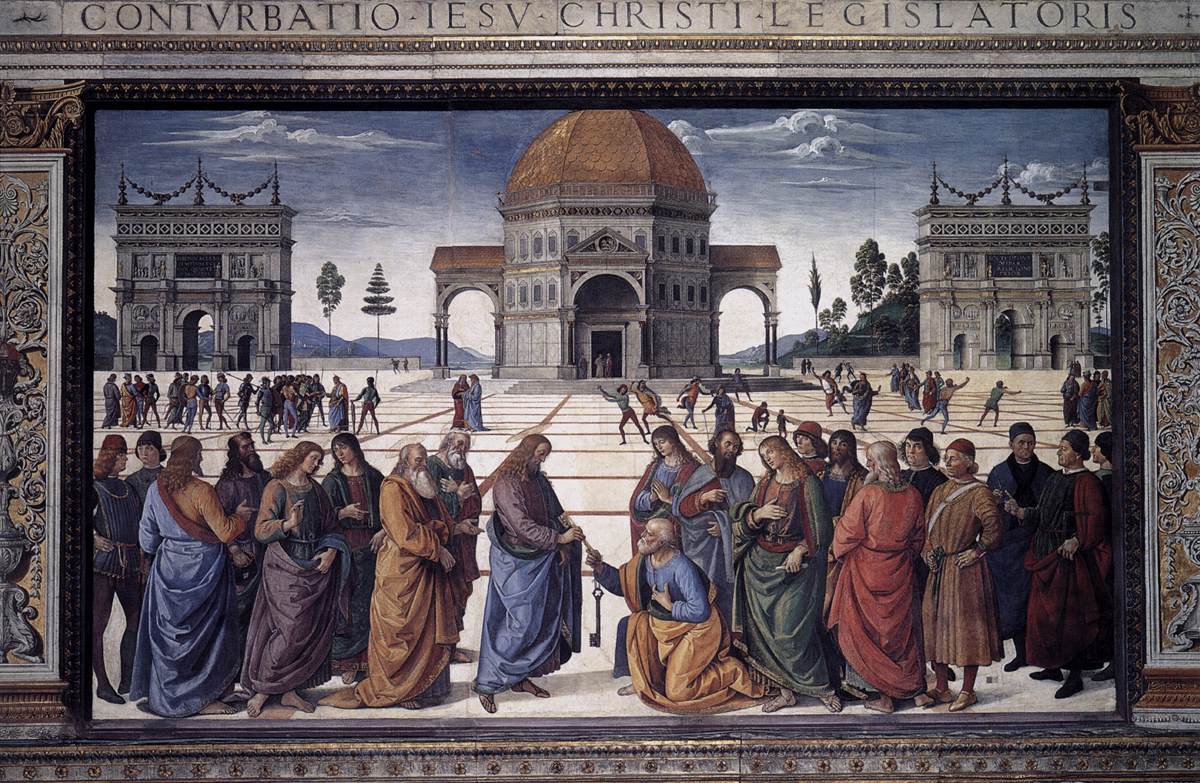
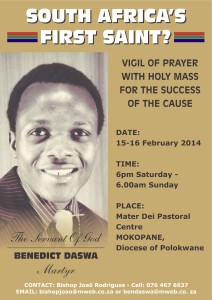
 Bishop Raymond Sumlut Gam
Bishop Raymond Sumlut Gam  St Patrick’s Cathedral, Banmaw [
St Patrick’s Cathedral, Banmaw [